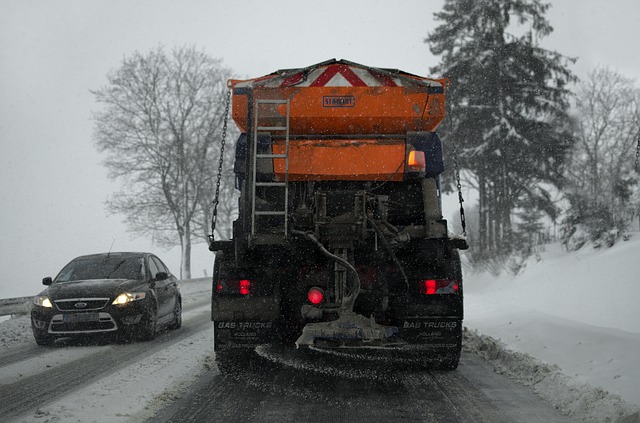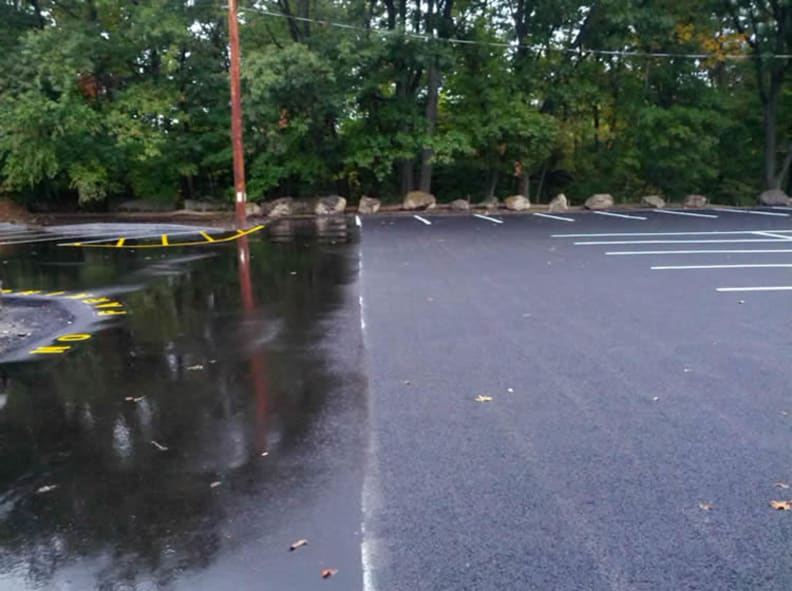 After the recent winter storms that blew through the southeastern United States, much of the ground was left blanketed with heaps of snow.
After the recent winter storms that blew through the southeastern United States, much of the ground was left blanketed with heaps of snow.
With hazardous driving conditions caused by the extremely icy conditions, officials turned to the traditional solution of salt to keep the streets clear.
However, there are growing concerns about the adverse effects of road salt, as the chemical not only contaminates the environment but also affects the health of people.
As a result, scientists are urging officials to search for a safer, more ‘eco-friendly’ alternative.
The Impact Of Road Salt
 Road salt is a salt made of the chemical compound calcium chloride. It is commonly used to de-ice roads during the winter by lowering the freezing point of water, thus making it harder for water and snow to freeze on the road.
Road salt is a salt made of the chemical compound calcium chloride. It is commonly used to de-ice roads during the winter by lowering the freezing point of water, thus making it harder for water and snow to freeze on the road.
Environmental scientists such as Bill Hintz who have conducted safety studies show that road salt has been contaminating freshwater ecosystems. Studies have also found a significant rise in the salinity of drainage areas in the United States from excessive use of road salt.
An increase in salt in ecosystems can disrupt the growth and development of aquatic organisms and lower oxygen levels in bodies of water. The accumulation of salt in rivers and streams is toxic not only to aquatic creatures but to humans as well. Road salt in river runoff often leads to saltier drinking water, which can be dangerous for consumption, especially for people on low-sodium diets.
Sustainable Alternatives
 Although there is no golden solution to the issue of replacing road salt, innovative methods are being developed to reduce the amount of salt spread out on roads.
Although there is no golden solution to the issue of replacing road salt, innovative methods are being developed to reduce the amount of salt spread out on roads.
One such alternative pre-salts the roads with a salt brine solution, which scientists say leads to a 75 percent decrease in the amount of salt used.
Engineers are developing new solutions that do not involve salt at all - including porous pavements and solar roads. Porous, or permeable, pavements prevent the buildup of ice on roads by allowing water to seep through instead of freezing on the surface.
Solar roads, on the other hand, could double up as renewable energy sources and eco-friendly de-freezers. Specially designed solar panels along the roads would convert the sun’s energy into renewable energy and heat water in pipes below the roads to melt any ice that forms.
Other places in the US are already employing eco-friendly alternatives - some of which are rather unconventional! For example, many cities now use fluids like beet juice, pickle brine, and even cheese brine as a biodegradable method to salt the roads.
Sources: NY Times, Columbia.edu, EPA, Vox







